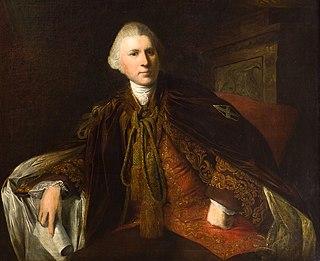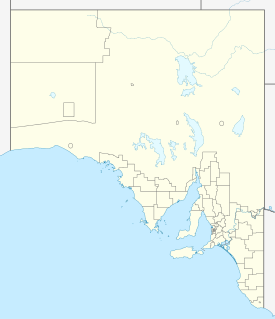George Duncan Mercer (27 December 1814 – 25 July 1884) [1] was a landowner and pastoralist in colonial Victoria, Australia. [2]

Victoria is a state in south-eastern Australia. Victoria is Australia's smallest mainland state and its second-most populous state overall, thus making it the most densely populated state overall. Most of its population lives concentrated in the area surrounding Port Phillip Bay, which includes the metropolitan area of its state capital and largest city, Melbourne, Australia's second-largest city. Victoria is bordered by Bass Strait and Tasmania to the south, New South Wales to the north, the Tasman Sea to the east, and South Australia to the west.

Australia, officially the Commonwealth of Australia, is a sovereign country comprising the mainland of the Australian continent, the island of Tasmania and numerous smaller islands. It is the largest country in Oceania and the world's sixth-largest country by total area. The neighbouring countries are Papua New Guinea, Indonesia and East Timor to the north; the Solomon Islands and Vanuatu to the north-east; and New Zealand to the south-east. The population of 25 million is highly urbanised and heavily concentrated on the eastern seaboard. Australia's capital is Canberra, and its largest city is Sydney. The country's other major metropolitan areas are Melbourne, Brisbane, Perth and Adelaide.
Mercer was born in India, the son of George Dempster Mercer and Frances Charlotte Reid. [1] Mercer, with his cousin William Mercer, reached Hobart from Calcutta in March 1838, having sold out from the 45th Regiment Bengal Native Infantry. [3] The Mercers established themselves as pastoralists in properties near Geelong.
George Mercer (1772-1853) was a Scottish merchant and landholder. He was a member of the Port Phillip Association, formed in June 1835 to settle land in what would become Melbourne, Victoria, Australia.
Major William Drummond Mercer (1796–1871) was a British Army officer, landowner, pastoralist and politician in colonial New South Wales.

The regiments of Bengal Native Infantry, alongside the regiments of Bengal European Infantry, were the regular infantry components of the East India Company's Bengal Army from the raising of the first Native battalion in 1757 to the passing into law of the Government of India Act 1858. At this latter point control of the East India Company's Bengal Presidency passed to the British Government. The first locally recruited battalion was raised by the East India Company in 1757 and by the start of 1857 there were 74 regiments of Bengal Native Infantry in the Bengal Army. Following the Mutiny the Presidency armies came under the direct control of the United Kingdom Government and there was a widespread reorganisation of the Bengal Army that saw the Bengal Native Infantry regiments reduced to 45.
His brother John later joined him in Australia.
In 1856 G. D. Mercer returned to Scotland, where he died unmarried in 1884.








